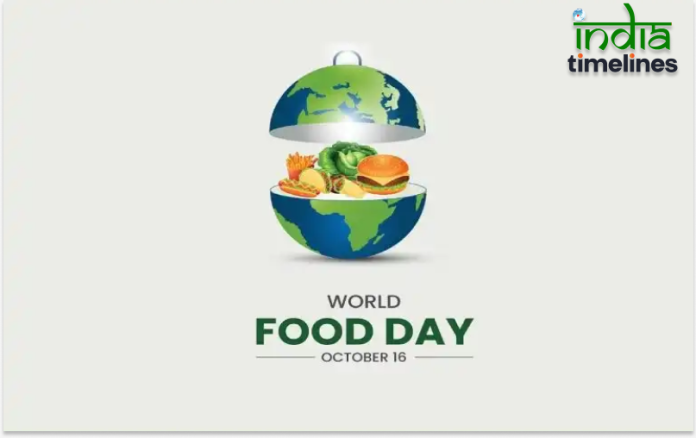
World Food Day is more than just a date on the calendar; it’s a global reminder of the importance of food security and sustainable agriculture. Celebrated every year on October 16th, this day highlights the ongoing struggle against hunger and the need for sustainable practices in our food systems. Let’s dive into the significance of World Food Day, its history, and how it encourages collective action towards a hunger-free world.
History of World Food Day
World Food Day was established in 1979 by the Food and Agriculture Organization (FAO) of the United Nations. The day commemorates the founding of the FAO on October 16, 1945. Since its inception, World Food Day has evolved to address various issues surrounding food security, agricultural sustainability, and global hunger. Each year, it provides an opportunity for individuals, organizations, and governments to reflect on the importance of food and the challenges that persist.
Objectives of World Food Day
The primary objectives of World Food Day are to:
- Raise Awareness: The day serves as a platform to educate the public about hunger, food security, and the importance of nutrition.
- Promote Sustainable Practices: It encourages the adoption of sustainable agricultural practices that can help feed the growing global population while preserving the environment.
- Advocate for Policy Changes: World Food Day calls for governments to implement policies that support food security and sustainable agriculture.
Significance of Food Security
Food security is defined as having access to sufficient, safe, and nutritious food to maintain a healthy life. It’s a crucial component of global health and well-being. Despite advancements, food security remains a significant challenge worldwide. According to the FAO, approximately 690 million people faced hunger in 2020, and this number has only increased due to the COVID-19 pandemic and ongoing conflicts.
Themes of World Food Day
Each year, World Food Day is centered around a specific theme. These themes reflect pressing issues related to food and agriculture. For instance, the theme for 2023 focused on “Leave No One Behind,” emphasizing the need for inclusive food systems. Past themes have ranged from promoting sustainable diets to addressing climate change impacts on food security.
Global Participation and Celebrations
World Food Day is celebrated worldwide, with various activities organized by governments, NGOs, and communities. Events can include food drives, community meals, educational workshops, and campaigns aimed at raising awareness. Countries like Italy and Brazil hold festivals showcasing local cuisines and agricultural practices, while organizations host discussions and panels on food security challenges.
Role of Organizations
The FAO plays a central role in organizing and promoting World Food Day. It collaborates with various stakeholders, including governments, civil society, and the private sector, to drive initiatives aimed at improving food security. Other organizations, such as the World Food Programme (WFP) and local NGOs, also contribute significantly to raising awareness and addressing hunger on a global scale.
Local Actions for Global Impact
While World Food Day is a global event, local actions can have a significant impact. Individuals can participate by:
- Volunteering: Get involved with local food banks or community gardens.
- Advocating: Raise awareness about food security issues within your community.
- Supporting Local Agriculture: Purchase food from local farmers and markets to promote sustainable practices.
The Role of Agriculture
Agriculture is at the heart of food security. Sustainable farming practices, such as crop rotation, agroforestry, and organic farming, can help increase food production while minimizing environmental impact. Innovations like vertical farming and hydroponics are also emerging as viable solutions to meet the food demands of urban populations.
The Impact of Climate Change
Climate change poses a significant threat to food production. Changes in weather patterns, increased frequency of extreme weather events, and rising sea levels can disrupt agricultural systems. Adapting to these changes is crucial for ensuring food security. Strategies such as implementing resilient crop varieties and improving water management practices are essential.
Nutrition and Health
Access to food is not enough; it must also be nutritious. Malnutrition remains a pressing issue, affecting millions worldwide. According to the World Health Organization, poor nutrition contributes to various health problems, including stunted growth in children and increased susceptibility to diseases. Promoting a balanced diet rich in fruits, vegetables, and whole grains is vital for public health.
Food Waste: A Global Crisis
Food waste is a significant issue that exacerbates food insecurity. Approximately one-third of all food produced globally is wasted. This not only affects the economy but also increases greenhouse gas emissions. Reducing food waste through better supply chain management, consumer education, and food recovery initiatives is crucial for enhancing food security.
Educational Initiatives
Education plays a key role in addressing food security and nutrition. Schools and universities are increasingly integrating food awareness programs into their curricula, teaching students about sustainable practices, healthy eating, and the importance of food systems. Community workshops and campaigns also help to spread knowledge about food security issues.
Future of Food Security
The future of food security depends on innovation and collaboration. Advancements in technology, such as precision agriculture and biotechnology, can help increase food production while minimizing environmental impacts. Additionally, fostering partnerships between governments, NGOs, and the private sector will be essential in addressing the complex challenges of food security.
Conclusion
World Food Day serves as a vital reminder of the importance of food security and sustainable agricultural practices. By raising awareness and encouraging collective action, we can work towards a world where everyone has access to sufficient, safe, and nutritious food. Let’s commit to making a difference in our communities and supporting initiatives that aim to eradicate hunger.
FAQs
1. What is the theme for World Food Day 2024?
The theme for 2024 will be announced closer to the date, focusing on current challenges in food security.
2. How can I participate in World Food Day?
You can participate by attending local events, volunteering, or spreading awareness about food security issues in your community.
3. What are some examples of food security initiatives?
Initiatives include community gardens, food banks, nutrition education programs, and policies aimed at supporting local farmers.
4. Why is reducing food waste important?
Reducing food waste helps conserve resources, minimizes environmental impact, and ensures that more food reaches those in need.
5. How can local communities improve food security?
Local communities can improve food security by supporting local agriculture, implementing food recovery programs, and educating residents about sustainable practices.



































